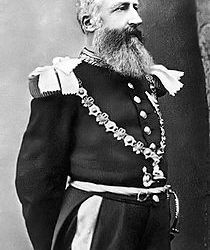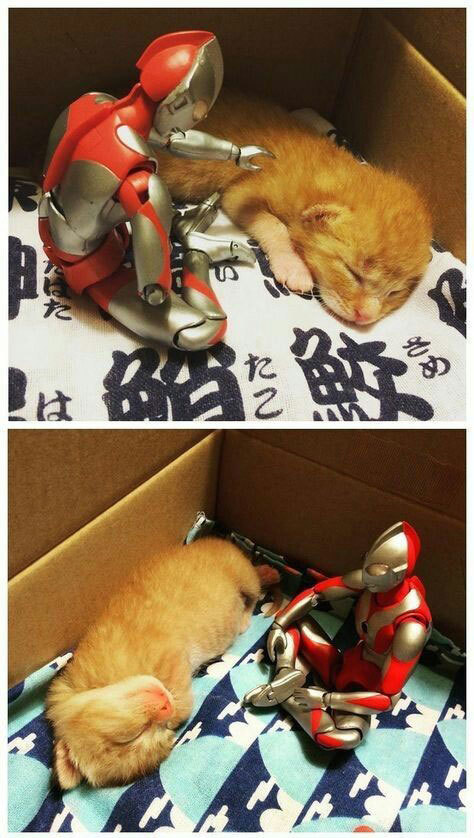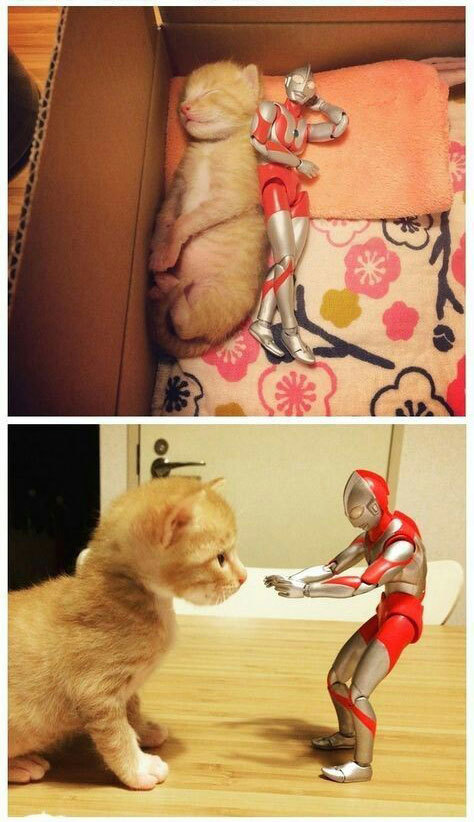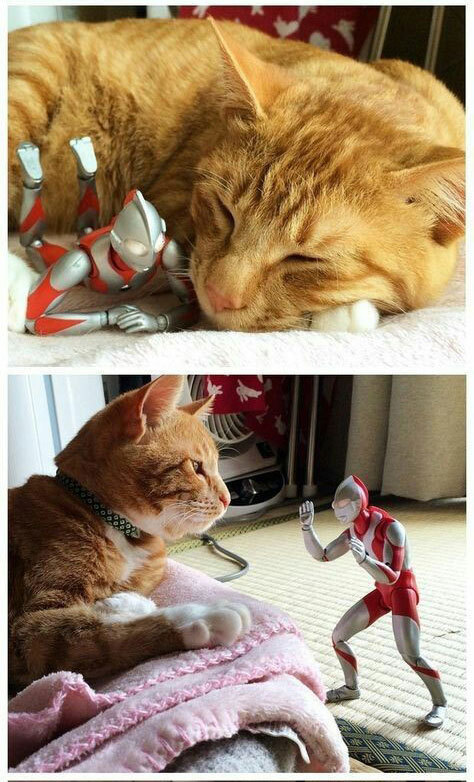Don't wanna be here? Send us removal request.
Photo





Criticisms on popular black film and drama. - @zellieimani
10K notes
·
View notes
Photo





Eri112’s money saving tips.
So, did you reblog this money saving challenge last January?
I did.
I remember thinking that it would never work. I remember thinking it would be too hard. I remember thinking HOW CAN I HAVE CASH IN MY ROOM AND NOT SPEND IT??
I just counted and it turns out I saved more than this person calculated.
I saved $1500 in cash. In one year. In a Mason jar.
If you had told me last year that I could do this, I never would have believed you. I have never been a financially secure person. This activity taught me so much about myself as a spender.
Here’s how I did it.
For those who have never seen this, the basic concept is that you print out this (or google 52 week money challenge…You can find many variations on this)…So the first week, you put in $1, second week is $2, third week is $3, etc. The final week of the year, you’ll put in $52. There are 52 weeks in a year. See how that works?
As I said, though. I somehow ended up with more. I’m not sure how that happened. Let me tell you how I managed to save money period.
PLEASE KEEP IN MIND, I AM NOT A FINANCIAL PROFESSIONAL. FOLLOW THESE TIPS WITH CAUTION. I CANNOT GUARANTEE THEY WILL WORK FOR EVERYONE.
1. Create your own payday. I have 2 jobs. One is my full time job that pays every two weeks on Thursday. The other is a part time job that pays every week on Wednesday. So, usually by Thursday, I have all the money I’m going to make that week. So, I made Thursday my pay day. Every Thursday, I made sure to put in the amount I was supposed to for that week.
2. Use small bills. This was CRITICAL to saving money for me. If I didn’t have the cash I needed, I would swing through the ATM and then ask a family member to trade a $20 bill for $1 bills. I put in the required money and then hid all of the other ones under the jar. That way, in future weeks I would have the ones I needed to make a payment.
3. Hide the jar in plain sight. I kept the jar in my room, but it was hidden. This way, I wasn’t tempted to spend it. I have 3 jars in my room. One is my “happy memories” jar where I right down all the good things that happen to me. Then I have my savings jar. I also have a jar for paying myself to work out. (Any time I work out, I pay myself a dollar. I use this money for fun stuff like going to the movies) In order to remember my savings jar and hide it at the same time, I put it directly behind my happy memories jar. That way, I could see the jars, but I couldn’t see the money inside.
4. Pack the money tight! It took my father a good five minutes to help me figure out how to get all of those bills out of that jar. This was quite fun to watch (“HEY DAD! I’m giving you $1400 in a jar! Help me get it out!”) and quite difficult to do. This is because I packed every inch of that jar. Having the money packed in tightly made it really difficult to take money out. The harder it was to take money out, the less I wanted to. I’m quite lazy.
5. Don’t be afraid to borrow, but write it down and pay yourself back in two days. I’ll admit, there were a few occasions where I needed to borrow some money from the jar. I never took more than $20. I also forced myself to pay it back in two days. Now that I think about it, I remember there was one time I borrowed and charged myself interest because I didn’t follow this rule…
Now, as I mentioned, my father is the recipient of this large stack of cash. He was incredibly proud of me, but this lead to a conversation of how I could put away money that could earn some money. He also suggested ways to get out of debt. So here is what he suggested.
1. Open a mutual fund with a high/mildly aggressive interest rate. A mutual fund is an account that you deposit a set amount every month. I’ll be opening one later this week. We found one that earns 13% interest. We agreed that I will put away $50 a month for 5 years. Please note that these accounts will charge a fee if you withdrawal from them. We did the math. If I put away $50 a month for 5 years, I will have deposited $3000. With a 13% interest rate, I will have $4394 by the end of those 5 years. That’s correct. The bank will pay me $1394 just for using their mutual fund.
2. Snowball your debt. I also have acquired a lot of debt over the years. I won’t lie. I love to shop. I have credit cards for every store, including amazon and LLBean (in NH, that’s a big deal). When I receive my bills this month, he and I are going to sit down and compare them all. We’ll be looking at total amounts due as well as the interest rate. Then, I will pay in full anything that I can. That way, I won’t continue to be charged interest on small amounts. Then figure out how much money I can send to the bigger bills. Once you know who has the highest interest rate, you can figure out how to divide that money. You pay the most money to the highest interest rate. On the others, you pay the minimum balance. This way, you can put more money towards the bill that you lose the most money on.
Some advice from my rich sister:
Find a way to earn money when you shop or waste time online.
My sister and I use many different apps for saving money on groceries or shopping. Message me if you’re interested and I can send you my sign up links.
I also use many different websites for earning money online. Check them out:
Bing: Without using it for every search I do, I’ve managed to earn $10 in Starbucks gifts card through Bing. I’m 54% away from my $5 gift card. All you have to do is search for 30 things through Bing. It can be random (I’ve searched my name a hundred times) and they suggest different stories for you to search. You don’t have to click on any of the search results. Just search. There are other ways to earn with Bing, but searching is the easiest. Check it out at Bing Rewards and start earning your gift cards now.
Treasure Trooper: I’ve also been on Treasure Trooper which I originally discovered through another Tumblr user (Thanks Diana!.) I’ve been using it for a little under a year and have already earned $30. You can answer surveys, listen to music, complete tasks…It’s pretty easy. You should check it out.
Inbox Dollars might just be my favorite, though. I’ve been signed up for a little over 5 months and have already earned $46.77. They also have surveys and videos to watch. They also send you e-mails and every time you click “view e-mail” you get 0.02. That adds up.
Swagbucks is an awesome website where you can watch videos (in the background while you sit on Tumblr) and answer surveys, etc. to earn points. Then you redeem those points for gift cards. I have earned $45 Amazon gift cards. It’s so easy. I love it.
So, this is all I have to give for money advice. I can certainly answer questions. Don’t hesitate to message me. Here’s to having a little more cash to play with!
Good luck everyone!
177K notes
·
View notes
Photo



rebloguea y recibiras una fotito bien hot en tu Buzon.. <3
solo si reblogueas
13K notes
·
View notes
Photo






IF I CATCH ANOTHER MUTHAFUCKER TALKING SWEET ABOUT CHIEF KEEF I’M FUCKING BEATING THEY ASS..
7K notes
·
View notes
Photo

“I cannot tell you that Hitler took Austria by tanks and guns; it would distort history.
If you remember the plot of the Sound of Music, the Von Trapp family escaped over the Alps rather than submit to the Nazis. Kitty wasn’t so lucky. Her family chose to stay in her native Austria. She was 10 years old, but bright and aware. And she was watching.
“We elected him by a landslide – 98 percent of the vote,” she recalls.
She wasn’t old enough to vote in 1938 – approaching her 11th birthday. But she remembers.
“Everyone thinks that Hitler just rolled in with his tanks and took Austria by force.”
No so.
Hitler is welcomed to Austria
“In 1938, Austria was in deep Depression. Nearly one-third of our workforce was unemployed. We had 25 percent inflation and 25 percent bank loan interest rates.
Farmers and business people were declaring bankruptcy daily. Young people were going from house to house begging for food. Not that they didn’t want to work; there simply weren’t any jobs.
“My mother was a Christian woman and believed in helping people in need. Every day we cooked a big kettle of soup and baked bread to feed those poor, hungry people – about 30 daily.’
“We looked to our neighbor on the north, Germany, where Hitler had been in power since 1933.” she recalls. “We had been told that they didn’t have unemployment or crime, and they had a high standard of living.
“Nothing was ever said about persecution of any group – Jewish or otherwise. We were led to believe that everyone in Germany was happy. We wanted the same way of life in Austria. We were promised that a vote for Hitler would mean the end of unemployment and help for the family. Hitler also said that businesses would be assisted, and farmers would get their farms back.
“Ninety-eight percent of the population voted to annex Austria to Germany and have Hitler for our ruler.
“We were overjoyed,” remembers Kitty, “and for three days we danced in the streets and had candlelight parades. The new government opened up big field kitchens and everyone was fed.
“After the election, German officials were appointed, and, like a miracle, we suddenly had law and order. Three or four weeks later, everyone was employed. The government made sure that a lot of work was created through the Public Work Service.
“Hitler decided we should have equal rights for women. Before this, it was a custom that married Austrian women did not work outside the home. An able-bodied husband would be looked down on if he couldn’t support his family. Many women in the teaching profession were elated that they could retain the jobs they previously had been required to give up for marriage.
“Then we lost religious education for kids
“Our education was nationalized. I attended a very good public school.. The population was predominantly Catholic, so we had religion in our schools. The day we elected Hitler (March 13, 1938), I walked into my schoolroom to find the crucifix replaced by Hitler’s picture hanging next to a Nazi flag. Our teacher, a very devout woman, stood up and told the class we wouldn’t pray or have religion anymore. Instead, we sang ‘Deutschland, Deutschland, Uber Alles,’ and had physical education.
“Sunday became National Youth Day with compulsory attendance. Parents were not pleased about the sudden change in curriculum. They were told that if they did not send us, they would receive a stiff letter of warning the first time. The second time they would be fined the equivalent of $300, and the third time they would be subject to jail.”
And then things got worse.
“The first two hours consisted of political indoctrination. The rest of the day we had sports. As time went along, we loved it. Oh, we had so much fun and got our sports equipment free.
“We would go home and gleefully tell our parents about the wonderful time we had.
“My mother was very unhappy,” remembers Kitty. “When the next term started, she took me out of public school and put me in a convent. I told her she couldn’t do that and she told me that someday when I grew up, I would be grateful. There was a very good curriculum, but hardly any fun – no sports, and no political indoctrination.
“I hated it at first but felt I could tolerate it. Every once in a while, on holidays, I went home. I would go back to my old friends and ask what was going on and what they were doing.
“Their loose lifestyle was very alarming to me. They lived without religion. By that time, unwed mothers were glorified for having a baby for Hitler.
“It seemed strange to me that our society changed so suddenly. As time went along, I realized what a great deed my mother did so that I wasn’t exposed to that kind of humanistic philosophy.
“In 1939, the war started, and a food bank was established. All food was rationed and could only be purchased using food stamps. At the same time, a full-employment law was passed which meant if you didn’t work, you didn’t get a ration card, and, if you didn’t have a card, you starved to death.
“Women who stayed home to raise their families didn’t have any marketable skills and often had to take jobs more suited for men.
“Soon after this, the draft was implemented.
“It was compulsory for young people, male and female, to give one year to the labor corps,” remembers Kitty. “During the day, the girls worked on the farms, and at night they returned to their barracks for military training just like the boys.
“They were trained to be anti-aircraft gunners and participated in the signal corps. After the labor corps, they were not discharged but were used in the front lines.
“When I go back to Austria to visit my family and friends, most of these women are emotional cripples because they just were not equipped to handle the horrors of combat.
“Three months before I turned 18, I was severely injured in an air raid attack. I nearly had a leg amputated, so I was spared having to go into the labor corps and into military service.
“When the mothers had to go out into the work force, the government immediately established child care centers.
“You could take your children ages four weeks old to school age and leave them there around-the-clock, seven days a week, under the total care of the government.
“The state raised a whole generation of children. There were no motherly women to take care of the children, just people highly trained in child psychology. By this time, no one talked about equal rights. We knew we had been had.
“Before Hitler, we had very good medical care. Many American doctors trained at the University of Vienna..
“After Hitler, health care was socialized, free for everyone. Doctors were salaried by the government. The problem was, since it was free, the people were going to the doctors for everything.
“When the good doctor arrived at his office at 8 a.m., 40 people were already waiting and, at the same time, the hospitals were full.
“If you needed elective surgery, you had to wait a year or two for your turn. There was no money for research as it was poured into socialized medicine. Research at the medical schools literally stopped, so the best doctors left Austria and emigrated to other countries.
“As for healthcare, our tax rates went up to 80 percent of our income. Newlyweds immediately received a $1,000 loan from the government to establish a household. We had big programs for families.
“All day care and education were free. High schools were taken over by the government and college tuition was subsidized. Everyone was entitled to free handouts, such as food stamps, clothing, and housing.
“We had another agency designed to monitor business. My brother-in-law owned a restaurant that had square tables.
“Government officials told him he had to replace them with round tables because people might bump themselves on the corners. Then they said he had to have additional bathroom facilities. It was just a small dairy business with a snack bar. He couldn’t meet all the demands.
“Soon, he went out of business. If the government owned the large businesses and not many small ones existed, it could be in control.
“We had consumer protection, too
“We were told how to shop and what to buy. Free enterprise was essentially abolished. We had a planning agency specially designed for farmers. The agents would go to the farms, count the livestock, and then tell the farmers what to produce, and how to produce it.
“In 1944, I was a student teacher in a small village in the Alps. The villagers were surrounded by mountain passes which, in the winter, were closed off with snow, causing people to be isolated.
“So people intermarried and offspring were sometimes retarded. When I arrived, I was told there were 15 mentally retarded adults, but they were all useful and did good manual work.
“I knew one, named Vincent, very well. He was a janitor of the school. One day I looked out the window and saw Vincent and others getting into a van.
“I asked my superior where they were going. She said to an institution where the State Health Department would teach them a trade, and to read and write. The families were required to sign papers with a little clause that they could not visit for 6 months.
“They were told visits would interfere with the program and might cause homesickness.
“As time passed, letters started to dribble back saying these people died a natural, merciful death. The villagers were not fooled. We suspected what was happening. Those people left in excellent physical health and all died within 6 months. We called this euthanasia.
“Next came gun registration. People were getting injured by guns. Hitler said that the real way to catch criminals (we still had a few) was by matching serial numbers on guns. Most citizens were law-abiding and dutifully marched to the police station to register their firearms. Not long afterwards, the police said that it was best for everyone to turn in their guns. The authorities already knew who had them, so it was futile not to comply voluntarily.
“No more freedom of speech. Anyone who said something against the government was taken away. We knew many people who were arrested, not only Jews, but also priests and ministers who spoke up.
“Totalitarianism didn’t come quickly, it took 5 years from 1938 until 1943, to realize full dictatorship in Austria. Had it happened overnight, my countrymen would have fought to the last breath. Instead, we had creeping gradualism. Now, our only weapons were broom handles. The whole idea sounds almost unbelievable that the state, little by little eroded our freedom.”
“This is my eyewitness account.
“It’s true. Those of us who sailed past the Statue of Liberty came to a country of unbelievable freedom and opportunity.
“America is truly is the greatest country in the world. “Don’t let freedom slip away.
“After America, there is no place to go.”
Kitty Werthmann
***Re-read the part where she says “everything was free” - healthcare and so on. Very much worth reading twice.****
28K notes
·
View notes
Photo

9 notes
·
View notes
Video
710K notes
·
View notes
Text
Ok
500 reblog and I'll post a video of me squirting
Just show me y'all want to see it 🙃
1K notes
·
View notes
Note
That's last statement is just hilarious. Black people can't be racist lmfao. Don't come to the Caribbean then.
Ever beet titfucked by a white guy?
Naw and I won’t
343 notes
·
View notes
Photo

Take a look at this picture. Do you know who it is?

Most people haven’t heard of him.
But you should have. When you see his face or hear his name you should get as sick in your stomach as when you read about Mussolini or Hitler or see one of their pictures. You see, he killed over 10 million people in the Congo.
His name is King Leopold II of Belgium.
He “owned” the Congo during his reign as the constitutional monarch of Belgium. After several failed colonial attempts in Asia and Africa, he settled on the Congo. He “bought” it and enslaved its people, turning the entire country into his own personal slave plantation. He disguised his business transactions as “philanthropic” and “scientific” efforts under the banner of the International African Society. He used their enslaved labor to extract Congolese resources and services. His reign was enforced through work camps, body mutilations, executions, torture, and his private army.
Most of us – I don’t yet know an approximate percentage but I fear its extremely high – aren’t taught about him in school. We don’t hear about him in the media. He’s not part of the widely repeated narrative of oppression (which includes things like the Holocaust during World War II). He’s part of a long history of colonialism, imperialism, slavery and genocide in Africa that would clash with the social construction of the white supremacist narrative in our schools. It doesn’t fit neatly into a capitalist curriculum. Making overtly racist remarks is (sometimes) frowned upon in polite society, but it’s quite fine not to talk about genocides in Africa perpetrated by European capitalist monarchs.
Mark Twain wrote a satire about Leopold called “King Leopold’s soliloquy; a defense of his Congo rule“, where he mocked the King’s defense of his reign of terror, largely through Leopold’s own words. It’s 49 pages long. Mark Twain is a popular author for American public schools. But like most political authors, we will often read some of their least political writings or read them without learning why the author wrote them (Orwell’s Animal Farm for example serves to re-inforce American anti-Socialist propaganda, but Orwell was an anti-capitalist revolutionary of a different kind – this is never pointed out). We can read about Huck Finn and Tom Sawyer, but King Leopold’s Soliloquy isn’t on the reading list. This isn’t by accident. Reading lists are created by boards of education in order to prepare students to follow orders and endure boredom well. From the point of view of the Education Department, Africans have no history.
When we learn about Africa, we learn about a caricaturized Egypt, about the HIV epidemic (but never its causes), about the surface level effects of the slave trade, and maybe about South African Apartheid (which of course now is long, long over). We also see lots of pictures of starving children on Christian Ministry commercials, we see safaris on animal shows, and we see pictures of deserts in films and movies. But we don’t learn about the Great African War or Leopold’s Reign of Terror during the Congolese Genocide. Nor do we learn about what the United States has done in Iraq and Afghanistan, potentially killing in upwards of 5-7 million people from bombs, sanctions, disease and starvation. Body counts are important. And we don’t count Afghans, Iraqis, or Congolese.
There’s a Wikipedia page called “Genocides in History”. The Congolese Genocide isn’t included. The Congo is mentioned though. What’s now called the Democratic Republic of the Congo is listed in reference to the Second Congo War (also called Africa’s World War and the Great War of Africa), where both sides of the multinational conflict hunted down Bambenga and ate them. Cannibalism and slavery are horrendous evils which must be entered into history and talked about for sure, but I couldn’t help thinking whose interests were served when the only mention of the Congo on the page was in reference to multi-national incidents where a tiny minority of people were eating each other (completely devoid of the conditions which created the conflict no less). Stories which support the white supremacist narrative about the subhumanness of people in Africa are allowed to be entered into the records of history. The white guy who turned the Congo into his own personal part-plantation, part-concentration camp, part-Christian ministry and killed 10 to 15 million Conglese people in the process doesn’t make the cut.
You see, when you kill ten million Africans, you aren’t called ‘Hitler’. That is, your name doesn’t come to symbolize the living incarnation of evil. Your name and your picture don’t produce fear, hatred, and sorrow. Your victims aren’t talked about and your name isn’t remembered.
Leopold was just one part of thousands of things that helped construct white supremacy as both an ideological narrative and material reality. Of course I don’t want to pretend that in the Congo he was the source of all evil. He had generals, and foot soldiers, and managers who did his bidding and enforced his laws. It was a system. But that doesn’t negate the need to talk about the individuals who are symbolic of the system. But we don’t even get that. And since it isn’t talked about, what capitalism did to Africa, all the privileges that rich white people gained from the Congolese genocide are hidden. The victims of imperialism are made, like they usually are, invisible.
* * If you liked this post, please consider visiting the author’s Facebook page and ‘liking’ it. Thank you! * *
92K notes
·
View notes










